SEBA Class 7 English Lesson 8: Women in Space – Summary, Solutions & Important Q&A
“Women in Space” from SEBA Class 7 English is an inspiring lesson that highlights the contributions and achievements of women in the field of space exploration. This chapter discusses the challenges faced by female astronauts and their determination to break barriers in a male-dominated field.
The lesson introduces students to famous female astronauts who have made significant contributions to space research. It also emphasizes the importance of gender equality, perseverance, and the role of women in science and technology.
On this page, you will find the summary, textbook solutions, important questions, and answers for SEBA Class 7 English Lesson 8 – Women in Space. These solutions are prepared as per the latest SEBA syllabus to help students excel in exams.
Click below to access the detailed solutions, MCQs, and explanations for this lesson.For other subject solutions, click here
Women In Space
ACTIVITIES
1. Let’s see how much we have understood.
(a) Who was the first Indian woman astronaut?
Ans: The first Indian woman astronaut was Kalpana Chawla.
(b) Why was the satellite Kalpana – 1 built?
Ans: The satellite Kalpana-1 was built in memory of Kalpana Chawla after her death.
(c) Where was Kalpana Chawla from?
Ans: Kalpana Chwala was from Karnal (Haryana) India.
(d) What was Kalpana Chawla’s dream?
Ans : Kalpana Chawla’s dream was to travel the moon.
(e) What does NASA do?
Ans : NASA studies Earth, including its climate, our sun and our solar system and beyond. And sends satellites to space.
(f) What was the aim of Columbia space shuttle Flight STS-87?
Ans : The aim of Columbia space shuttle Flight STS-87 was to study the outer atmosphere of the sun.
(g) How did Kalpana Chawla die?
Ans : On their way back at a height of above 61000 metres taxes. The space vehicle broke up in flames on its way back to earth and all the seven astronauts including Kalpana Chawla died.
Q. 2. In the lesson, you read about some important dates and numbers. See whether you remember what each number stands for.
1961: ……………………………………………………
1997: ……………………………………………………
STS-87: …………………………………………………
61,000m: ……………………………………………..
Ans : 1961: birth date of Kalpana Chawla.
1997: Kalpana Chawla joined the Columbia shuttle Flight STS-87.
STS-87: Kalpana Chawla with other six astronauts went into space on the space shuttle STS-87.
61,000 m: The space vehicle broke up in flames at the height of 61,000 metres.
Q. 3. Make a poster of Kalpana Chawla for your science exhibition in the box below. Include her childhood information and her work details in your poster.
Ans :
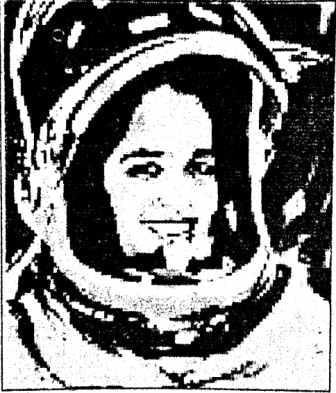
Ans:- Kalpana Chawla:- Kalpana Chawla was born in 1961 in Karnal, India. On 2 December 1983, Kalpana Chawla was married to Jean-Pierre Harrison at the age of 21. She was the first Indian – American astronaut and first Indian woman in space.
Kalpana’s dream was always to travel to the moon, and as a result of her hard work and dedication, she reached such heights. In 1977 Kalpana Chawla joined the columbia space shuttle flight STS – 8. She was the only woman in the team of seven astronauts. They managed to collect a lot of important data. But the space vehicle broke up in flames on its way back to earth. At a height of 61,000 metres above texas. All the seven astronauts including Kalpana Chawla died.
Q. 4. Let’s learn some grammar:
Read the following sentences about Manas and Mayuri.
(i) Manas said to Mayuri, “Hello, Mayuri! Have you completed the project on “Women in space?”
(ii) Manas greeted Mayuri and asked her whether she had completed the project on women in space. The words spoken by a person/persons can be reported in two ways : Direct and Indirect.
When we quote the exact words spoken by a person, we call it Direct Speech. Note that the exact words spoken by the speaker Manas are put within inverted commas.
There are some rules for changing Direct speech to indirect speech.
• In indirect speech no inverted commas are used,
• The part used before the inverted commas (for example: Manas said to Mayuri) is called the reporting clause. The verb (for example: said) in a reporting clause is called a reporting verb.
• We can also make the speaker’s words a part of our own sentence. When we do so, the words are in Indirect speech or Reported Speech. While reporting a speech, we make changes to some of the words in Direct Speech.
Here is a sentence in Indirect speech. Write the sentence in Direct speech in the space below. Remember to use inverted commas.
Mayuri said that she had read about it on the internet.
Ans : Mayuri said, “I have read about it on the internet.
(b) In column A below are two sentences in Direct speech. In column B these are the matching sentences in Indirect Speech. Are the sentences in column B correct? If not, write them correctly in column C.
|
Column A |
Column B |
Column C |
|---|---|---|
|
Mayuri Said to Manas, “Do you know What NASA is?” |
Mayuri Said to Manas that does he know what NASA is? |
|
|
Manas Said, “Our country will always remember her.” |
Manas Said that “Our Country would always remember her.” |
Ans :
|
Column A |
Column B |
Column C |
|---|---|---|
|
Mayuri Said to Manas, “Do you know What NASA is?” |
Mayuri Said to Manas that does he know what NASA is? |
Mayuri asked Manas if He knew what NASA was |
|
Manas Said, “Our country will always remember her.” |
Manas Said that “Our Country would always remember her.” |
Manas Said that their country would always remember her. |
Q. 5. Let’s revise:
|
Forms |
Examples with use |
|---|---|
|
1. base form |
Look: Look at the moon. |
|
2. S form |
Looks: He looks at the moon. |
|
3. past form |
Looked: He looked at the moon |
|
4. ing form |
Looking: He is looking at the moon. |
Now fill in the blanks with suitable forms of verbs:
(i) Mayuri ……………..Manas on her way to school. ( s form of meet )
(ii) I’m sure she……………… flying in space. (past form of love )
(iii) It has ……………………To the sky .(past participle of fly )
Ans : (i) Mayuri meets Manas on her way to school.
(ii) I’m sure she loved flying in space.
(iii) It has flown to the sky.
Q. 6. Here are some interesting facts about famous astronauts who were women.
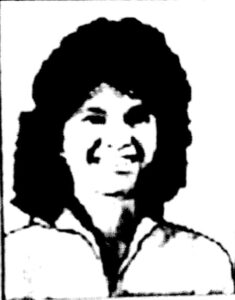
Sally Ride was the first American woman to go into space.

Valentina Tereshkova was the first woman in space and also one of the youngest female astronauts in history.
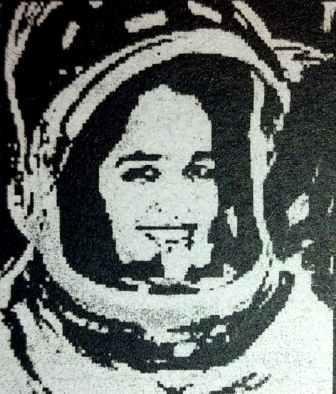
Sunita Williams is an astronaut and a United States Navy officer of Indo- Slovenian descent.
Now collect a picture of an astronaut and paste it in your notebook. Write a few sentences about him or her just below the picture.
Ans :

Rakesh Sarma was the first Indian astronaut. He flew to space on 3rd April 1984 through Indo-Russian space travel.
Q. 7. Let’s practise speaking in English. Using the phrase ‘Have you heard’, ask your partner a few questions about space. One is done for you.
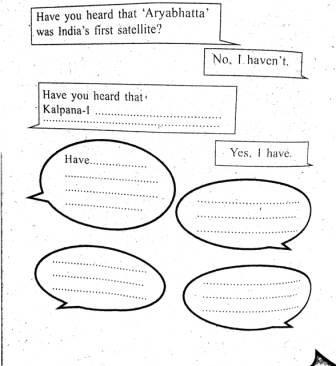
Ans:
|
Person – 1 |
Person – 2 |
|---|---|
|
Have you heard that ‘Aryabhatta’ was India’s first satellite? |
No, I haven’t. |
|
Have you heard that Kalpana Chawla was the first woman in space? |
Yes, I have. |
|
Have you heard that the space vehicle broke up in flames on its way back to earth? |
Yes, I heard about it, what a great loss, We are very proud of her. |
|
Yes, you are right. I also want to become Astronaut. |
Oh, really. That’s great. |
Q. 8. The box below has certain words used to ask questions. Find and write them in the space given.
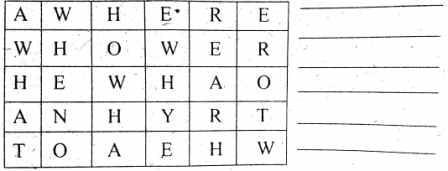
Ans:
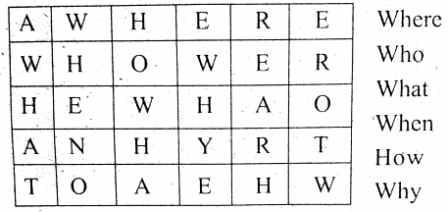
Q. 9. Fun with words :
Do you know what is interesting about these words? If you remove the first letter from each of the given words, you will find a new word. Write the new words in the space crafts under each word:
flight Send Space Craft Know there
Ans :
flight – Night
Space – escape
Know – now
Send – end
Crft – raft
There – here
Now think of three more words like the above, and write them here.
Ans :
|
Flight |
Light |
|---|---|
|
Send |
bend |
|
Seven |
heaven |
|
Night |
might |
|
Mission |
mention |
Q. 10. See how many new words you can form with the letters used in the word ‘because’ below. One is done for you.
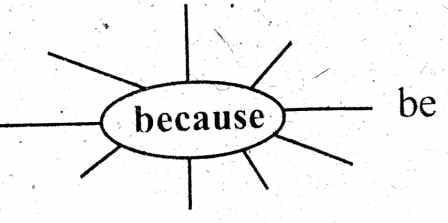
Ans :
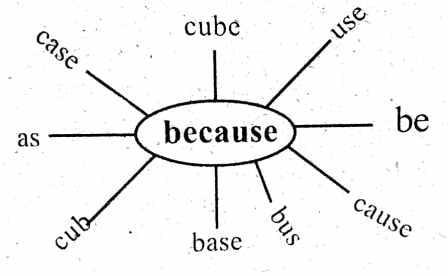
Q. 11. Manas wants to be an astronaut when he grows up. Mayuri wants to be a scientist.
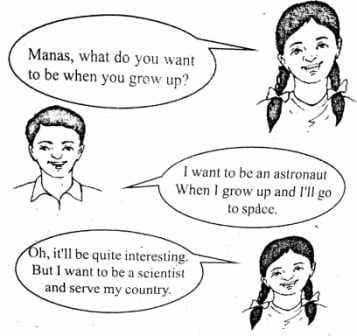
Sit in pairs and tell each other what you want to be when you grow up and why.
Q. 12. Project Works:
[The teacher will do the needful.
